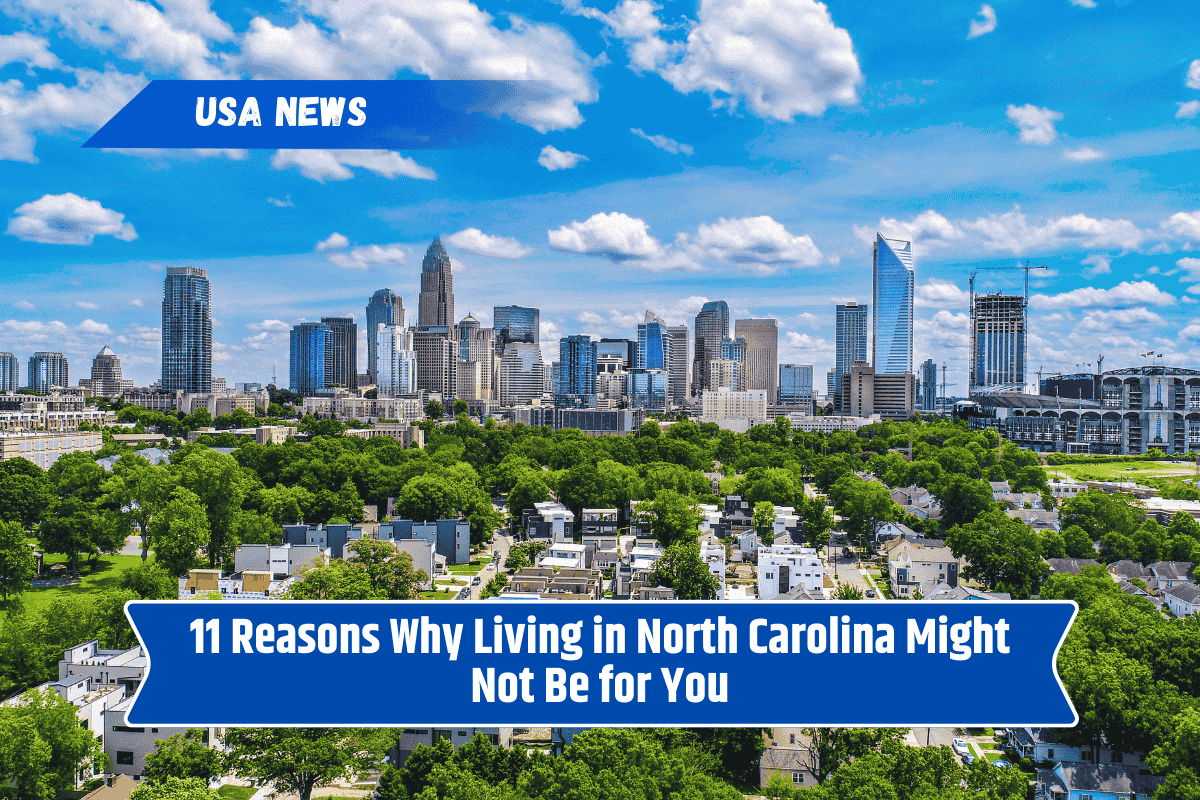North Carolina often shows up on lists of the best states to live in, thanks to its mix of beaches, mountains, and growing cities. But like any place, it’s not perfect for everyone. If you’re considering a move, it’s worth knowing both the perks and the drawbacks. Here are 11 reasons why living in North Carolina might not be for you.
1. Hot, Humid Summers
If you don’t handle heat well, summers in North Carolina can feel brutal. Temperatures often climb into the 90s with heavy humidity, making it sticky and uncomfortable, especially in the eastern part of the state.
2. Hurricane Risk on the Coast
Living near the beach sounds dreamy—until hurricane season arrives. Coastal North Carolina is vulnerable to hurricanes and tropical storms, which can bring flooding, power outages, and costly property damage.
3. High Pollen Counts
Spring in North Carolina is gorgeous with blooming flowers and trees, but it’s also tough for allergy sufferers. The pollen season here is long and intense, coating cars, porches, and everything else in yellow dust.
4. Rapid Growth and Traffic
Cities like Charlotte and Raleigh are booming, which means crowded roads and longer commutes. Public transportation is limited, so if you hate driving, living in these urban areas can be frustrating.
5. Uneven Job Opportunities
While tech, healthcare, and banking thrive in some cities, rural areas often lack job options. If you’re outside the urban hubs, finding stable, high-paying work might be more difficult.
6. Education System Concerns
North Carolina’s public schools often face funding challenges, with teacher pay ranked lower than the national average. Families moving here for schools may find the quality uneven depending on the district.
7. Bugs, Bugs, and More Bugs
Warm weather means mosquitoes, ticks, and cockroaches are common. If creepy crawlies make you squeamish, you’ll need strong bug spray and good pest control.
8. Conservative vs. Progressive Divide
North Carolina is a mix of liberal cities and conservative rural areas. This political divide can create tension, especially for people who strongly identify with one side or the other.
9. Natural Disaster Variety
Besides hurricanes, the state deals with tornadoes in the Piedmont, occasional flooding in lowlands, and even winter ice storms. Weather hazards vary depending on where you live.
10. Limited Public Transportation
Outside of a few city bus systems and a small light rail in Charlotte, public transit options are scarce. Most residents need a car to get around, which can be expensive.
11. Cost of Living Isn’t as Low as People Think
While cheaper than some states, housing prices in popular areas like Raleigh, Durham, and Asheville have risen sharply. Add in property taxes and insurance, and the cost of living can surprise newcomers.
North Carolina is a beautiful and diverse state, but it’s not the right fit for everyone. From hurricane risks and high pollen counts to rapid urban growth and limited public transit, life here has its share of challenges.
If you’re considering a move, it’s smart to weigh these downsides against the perks. That way, you’ll know if the Tar Heel State truly feels like home—or if you’d be happier somewhere else.
